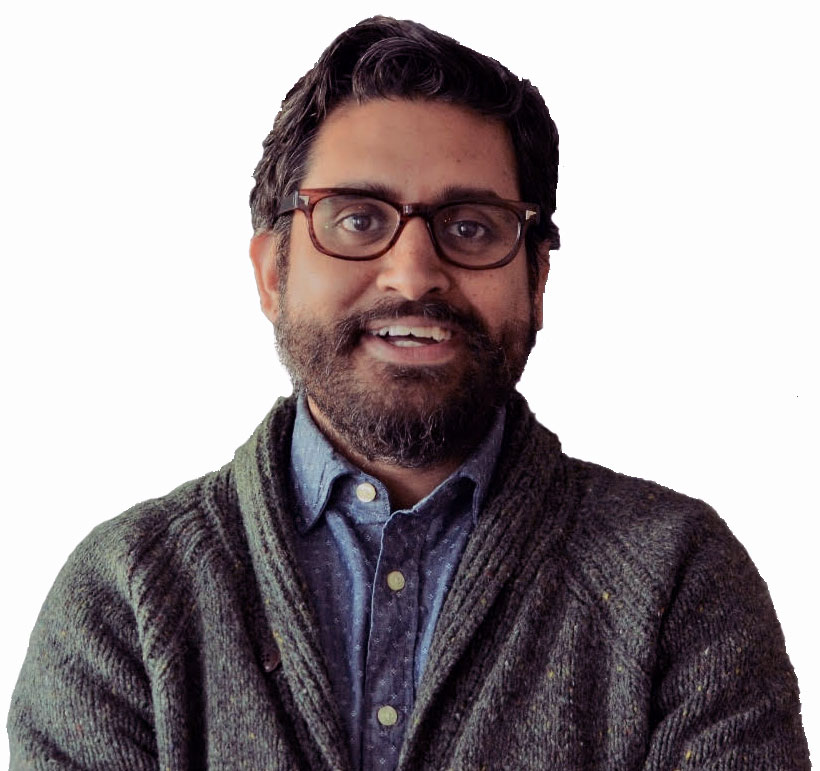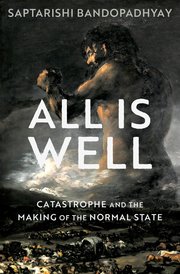Post
Published on October 25, 2022
As the world reels from catastrophes on multiple fronts, a recent book by Osgoode Hall Law School Associate Professor Saptarishi Bandopadhyay is redefining the role and meanings of disaster in relation to statecraft, says York University’s associate vice-president of research.

“Disaster management is a science of the future; what it needs is a past,” said Jennifer Hyndman, associate vice-president research, quoting from the book’s preface during the official launch at Osgoode Hall Law School, York University.

In All is Well: Catastrophe and the Making of the Normal State, she said, “Saptarishi proves this historical piece through three cogent cases of catastrophe and an argument that will fundamentally change the fields of humanitarian emergencies and disaster management.”
The book was published by Oxford University Press (OUP) earlier this year. The Oct. 19 launch event featured a panel of four senior York University scholars, including Hyndman, whose research focuses on conflict, human displacement, refugee settlement and social inclusion of refugees in Canada.
The panellists also included: Osgoode Hall Law School Associate Professor Dayna Scott, who serves as the York Research Chair in Environmental Law & Justice in the Green Economy; Professor David Etkin, who teaches disaster and emergency management; and Associate Professor Adrian Viens, who teaches global health policy and serves as the inaugural director of the School of Global Health. Viens is also the York Research Chair in Population Health Ethics and Law.
Scott called the book a “devastating critique of the norms of liberal rule.
“It presents ideas that are challenging to the status-quo understanding of disaster management,” she added. “Whenever we see disaster management in play, we’re also witnessing state-making. The book leaves me with a richer set of questions.”
Etkin said the book points to the urgent need to incorporate moral and ethical considerations into disaster risk analysis and calls into question the growing privatization of agencies involved in disaster response.
“The role of the state is huge, but the state also has moral biases,” he noted. “I think there needs to be a major moral shift.”

Viens said the book not only has implications for disaster management, but for global health.
“The relevance of Dr. Saptarishi Bandopadhyay’s wonderfully incisive and captivatingly written book extend far beyond disaster management,” he said.
“His analysis is keenly relevant for global health more generally – in particular tracing parallels between state formation and governance of catastrophe to our modern system of global health governance and the perils of replicating neoliberal structures and approaches.”
In the book, Bandopadhyay delves deeply into three historical catastrophes to make his arguments: the Marseille plague of 1720, the Lisbon earthquake of 1755 and the Bengal famine of 1770.
“Challenging traditional narratives,” says the OUP book description, “All Is Well looks at ‘disaster management’ as a historical process that produces both catastrophes and political authorities.
“Bandopadhyay examines these exercises in catastrophe conservation and state formation and shows how the underlying beliefs and resulting insights underwrite sophisticated but deeply inequitable present-day norms and practices of global governance,” adds the description. “He concludes that climate change, and the national and international authorities designed to fight it, are products of three centuries of disaster management, and civilizational survival depends on reckoning with this past.”
Bandopadhyay said he hopes the book will help scholars, students and lay audiences understand that disasters are often the result of “successful” legal, political and scientific governance. He also hopes it will shed light on how three-centuries-old campaigns to conquer nature for civilization’s use have produced nation-states and an international community that function through crises rather than despite them.
But those lessons may not be learned overnight, he cautions.
“Most law schools don’t teach disasters – and most of the other disciplines I engage with in the book (environmental history, disaster studies and science and technology studies) rarely engage with law seriously,” he said.
“I expect it may take some time for the book’s critical stance to be palatable for many readers and policymakers who are driven to focus on policy problems without attending to underlying knowledge problems.”
Originally published by Yfile(October 25, 2022).
Themes | Global Health & Humanitarianism |
Status | Active |
Related Work |
N/A
|
Updates |
N/A
|
People |
You may also be interested in...
Internship Program: 2021-2022 Year In Review
The Dahdaleh Institute worked with exceptional students this year through our Internship Program, which is founded in an experiential education approach. Students completed program practicums with us, were hired through the Research at York program, ...Read more about this Post
Recap – Inuit Perspectives: Health and Well-being Through Storytelling
On January 31, 2024, the Wellness Impact Lab at the Dahdaleh Institute kicked off its 3-part seminar series focused on Inuit perspectives on mental health and well-being, ‘Climate Change and Mental Health: Listening to the ...Read more about this Post
Recap – Innovative Approaches to Target HPV-Vaccine Accessibility and Cervical Cancer in Sub-Saharan Africa
On November 22, 2023, Dahdaleh graduate scholar Eric Asempah addressed the urgent global health issue of preventing human papillomavirus infection (HPV) related cervical cancer through prophylactic vaccines in low and middle-income countries. Cervical cancer claims ...Read more about this Post
